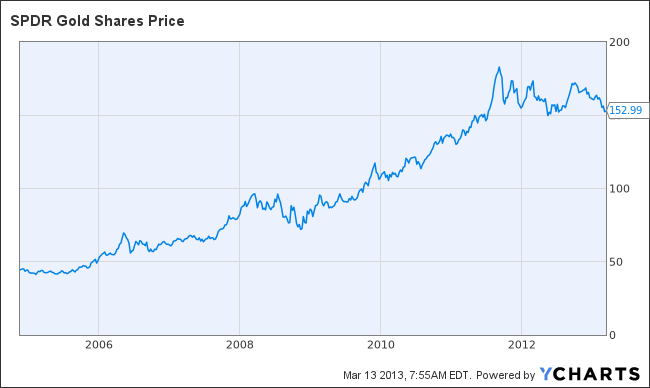In February of 2013, the Dow Jones Industrial Average went up 1.4%, the Nasdaq increased 5%, and the S&P 500 rose 1.1%.
In evaluating the prospects for the U.S. economy in early 2013, there are several offsetting factors which, in my opinion, make growth potentially subdued. Positive trends which I believe could contribute to a quicker rate of expansion include the continuing improvement in oil and gas production, the slowly mending U.S. housing industry, and an accelerating merger and acquisition environment.
Each of these developments is important because they all have large secondary impacts on other industries, potentially creating a multiplier effect across a broad range of segments in the economy.
On the opposite side of the spectrum, the expiration of the Bush payroll tax cuts, the reduction of spending in government related defense and health care programs due to sequestration, and the upcoming implementation of the Affordable Care Act (Obamacare), are all forces which could impede economic recovery.
Interestingly, a slowing down in the rate of government spending is probably the first step to trying to control the expense side of the federal government. The current administration has repeatedly stated it favors a “strong dollar policy.” Rhetoric is nice, but running consistent deficits of over $1 trillion dollars per year help create the conditions for a weak currency.
If one couples the ‘Quantitative Easing’ policies of the Federal Reserve with the large budget deficits, record low treasury yields mean a strong dollar is nowhere to be found. Indeed, Fed Chairman Ben Bernanke testified this week about the benefits of maintaining the current policy for the foreseeable future.
Fortunately for the United States, currency weakness is the prevailing standard across the globe. In fact, fiscal austerity is being questioned because of the harsh economic and political consequences in the U.K, Japan, and across Europe.
As an investor, the weak currency situation is often promoted as being good for investors of that country. These situations take a long time to evolve, and there are many factors to consider. However, in fact, a weak underlying currency is usually a large headwind for investors as the underlying value of an asset is being eroded.
The logical question which follows is what would be a better alternative? Gold or other hard metals would seem to be the correct answer.
Yet, the glittering performance of gold during the last ten years has suffered recently.
Welcome to investing! However, whereas in the short term anything can and usually does happen in financial markets, as time passes, gold increasingly looks more attractive in my opinion.
You have to give the politicians from around the world credit for one thing, anyway: they are consistent in their efforts to expand their countries’ money supply. Certainly, as a group they deny currency devaluation in public, but in practice, it’s a race to debase.
The U.K., Japan, United States, and members in the Eurozone are all employing the same strategy in order to try and revive economic growth. In the U.K, politicians are rethinking austerity because the economy is back in no growth mode or in recession.
There are even calls for a negative interest rate policy, as if it would change the current situation. What many find intriguing is that many equity markets across the world have responded well, especially in Asia.
The investment world, and almost anything which involves making or losing money, is full of people who want something for nothing. I would bet many readers have experienced this in one way or another during their lives as well.
With investing capital in securities, many use a strategy of following well known investors choices. The thinking is if I own the same security which a good investor owns, I will do just as well as them. Maybe, maybe not.
I believe investment success is based on using one’s investment process and judgment to analyze potential opportunities. Good analysis is only one part of the equation for success with investing, as I see it. I believe another critical aspect is having the ability to hold onto your choices when others disagree, as evidenced by a decline in your position after you purchase it.
Maybe you have experienced the same thing, but most of the time when I buy a stock, I expect it will go down initially. In fact, I believe you have to be willing to accept temporary losses initially in order to reap the benefits later. Many times, others will not believe in your choices.
When you copy others ideas, it is much easier to just sell the position when it moves against you. If you actually go through the work of discovering, research, and analyzing an investment, you have a much better understanding of why you bought it.
As a result, you are less willing to let it go when things go against you. You also begin to understand that no company is perfect, and almost all have issues which they need to address. On many occasions, investors buy a cheap stock using good analysis, but because the market price moves against them and their risk management rules, say, your stock is down 8% or so, you sell.
You take the loss, and then, low and behold, six months later the stock goes up 30%. The analysis was right, but because you couldn’t take the pain, you lose money. I believe thinking independently and not copying others gives you much better staying power, which ultimately helps your results.
Warren Buffett has just released his annual shareholder letter. As always, there were plenty of pearls of wisdom throughout the document. He criticizes fellow CEOs cautiousness in capital spending as a mistake, offering now is the time to invest heavily. He also explains his thinking on why having no dividend policy for Berkshire Hathaway is financially more attractive.
He also made a case for stocks as a long-term investment. A simple message, but very self evident to those who are willing to take his advice. Listening to guy who created a company worth $200 billion when starting with only $100,000, of which only $100 was his own money, might not be a bad idea.



